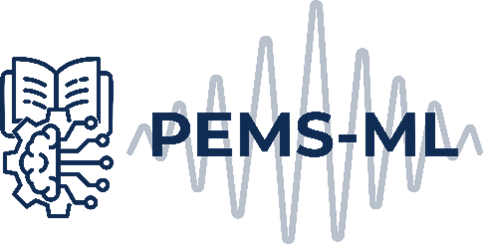| Project Information | Project Short Description | The Role of UKIM/FEEIT in the project |
 |
The Eco Minds project, co-funded by the European Union, aims to drive digital and green transformations in higher education. It involves transnational collaboration among five countries’ higher education institutions, the business sector, and civil society organizations.
The project’s specific objectives are to modernize curricula by developing two new courses and a digital seminar focusing on machine learning, database design, and environmental data analysis. These courses will address the need for interdisciplinary education and skill development in both IT and environmental sciences, preparing students for roles such as data analysts and environmental scientists. The project will involve collecting and analyzing environmental data from sea and freshwater sources, modeling, and managing aquaculture systems using AI and machine learning. It aims to enhance the employability of undergraduate students, secondary school pupils, and NEETs and will be developed in multiple languages to ensure accessibility to a broad range of learners. The project methodology includes training and exchange of expertise among educators, as well as the development and piloting of bachelor-level elective courses, digital seminars, and multiplier events. The partnership will enhance cross-sectoral collaboration, boosting the capacities of educators and stakeholders while promoting sustainability and the digital transformation of the blue economy. The long-term benefits of the Eco Minds project include the development of sustainable educational models and open-access learning materials, as well as stronger connections between higher education and local environmental and business sectors. |
Organization and participation in conferences, workshops, joint preparations of digital platforms for training, as well as preparation of study materials for several training courses, digital publications and reports. Mobility of teaching and research staff (doctoral students) and students, educational, as well as trips for experience exchange and staff training.
|
| “EcoMinds – Enhancing Environmental Data Collection through Machine Learning and Database Systems” | ||
| Funding programme: Erasmus+ Strategic Partnerships, Key Action 2Cooperation partnerships in higher education
Agreement reference: 2024-1-HR01-KA220-HED-000245495 Duration: 01.10.2024 – 31.03.2027
|
||
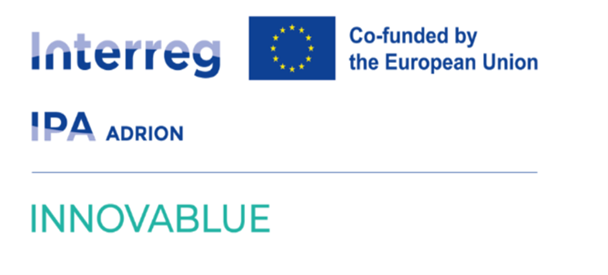 |
Project INNOVABLUE main objective is to bring a new perspective regarding development of sustainable blue economy to Adrion region by fostering and Integrating 2 strategically positioned innovation communities BlueAIR’s Innovation community and the innovation community organized around cross-border Digital Innovation Hub Innovamare. Developed Innovablue innovation community will propel marine technologies and innovation for sustainable blue economy and foster stronger collaboration across the ADRION region. The objectives are focused to respond to key challenges by enhancing the innovation ecosystem to improve collaboration between 4helixstakeholders, develop new regulatory frameworks to tackle regulatory bottlenecks that slow down the adoption and scaling of innovative blue technologies, boost funding for blue technology projects by mapping potential funding opportunities, developing investment portfolios, and engaging stakeholders to support innovative marine technologies, and facilitating the technology transfer in the marine sector to strengthen the sectors competitiveness and sustainability. | FEEIT will play a crucial role across all project activities. It will work to expand the excellence map to North Macedonia by identifying stakeholders in Blue Tech and Blue Economy, exploring potential living lab sites for testing blue technologies on rivers and lakes, and compiling lessons learned to develop a strategic document for enhancing the regional blue economy. FEEIT will also analyze the local regulatory framework, identify barriers limiting innovation, and recommend necessary adjustments. Additionally, it will focus on mapping funding opportunities, developing financial models, and creating investment portfolios to support companies in blue technologies. Its most significant contribution will be co-leading the innovation and technology transfer efforts, leveraging its expertise as North Macedonia’s leading entity in this field. By engaging its Digital Innovation Hub, FEEIT will facilitate prototyping, technology transfer, and stakeholder support while designing and monitoring innovation challenges to drive impactful solutions.
FEEIT Project manager: Prof. Dr. Vladimir Atanasovski
|
| Strengthening innovation capacities in the Adriatic – Ionian region |
||
| Project ID: IPA-ADRION00278
Acronym: INNOVABLUE Start date: 1.6.2024 Web page: https://innovablue.interreg-ipa-adrion.eu/
|
||

|
The project aims to develop an innovative concept of personalized learning in higher education, focusing on its application in the field of measurement technology. These educational concepts align with the latest recommendations in Education 5.0, emphasizing the student and their individual characteristics as the core of the educational process. The personalized learning approach will be implemented through the integration of machine learning and artificial intelligence. The project specifically targets measurement technology and related application solutions within Industry 5.0, encompassing areas such as the Internet of Things (IoT), Industrial Internet of Things (IIoT), Digital Twin technology, and sensor technologies. As part of the project, a new course will be developed to address the challenges of personalized learning. A variety of teaching materials will be created, including multimedia presentations, educational computer games, simulations, and practical demonstrations. These resources will support diverse learning methods, enabling students to enhance their skills and competencies in measurement and sensor technologies. The main objectives of the project include: • Implementing tailored educational strategies that accommodate the unique needs and learning styles of each student in the realm of measurement science and technology. • Infusing machine learning methodologies into the educational framework providing students with a cutting-edge skill set aligned with industry demands. • Empowering students with the ability to navigate and contribute to the rapidly evolving landscape of Industry 5.0, where measurement techniques play a pivotal role. And the main results include: • Personalized learning methods to meet individual student needs, creating an effective, engaging educational setting in measurement science and technology. • Motivating and assisting educators in embracing innovative teaching methods and consistently enhancing their approaches to remain at the forefront of educational innovation. • Graduates well-prepared to contribute to the advancements of Industry 5.0, where measurement techniques play a crucial role in shaping the future of various sectors.The uniqueness of the PEMS-ML project lies in its emphasis on developing modern educational materials such as videos, games, multimedia presentations, and simulations to enhance learning and mastery of the content. These educational concepts are fully aligned with the latest recommendations in Education 5.0, which place the student and their individual characteristics at the heart of the educational process. The concept of personalized learning will be implemented through the use of machine learning and artificial intelligence. PEMS-ML is a project led by the Faculty of Electrical Engineering and Information Technologies (FEEIT) at “Ss. Cyril and Methodius University in Skopje under the KA220-HED – Cooperation Partnerships in Higher Education program. With a duration of two years and a total budget of 120,000 euros, the project is co-financed by the Erasmus+ program of the European Union and officially commenced on November 1, 2024. In addition to FEIT as the lead partner, the project involves collaboration with Politecnico di Milano (Polimi) and the Faculty of Electronics at the University of Niš (UNI).Profiles on social media: Facebook: https://www.facebook.com/profile.php?id=61568594792049 Linkedin: https://www.linkedin.com/groups/14551369/ Website: https://sites.google.com/view/pems-ml-erasmus/news?authuser=0The PEMS-ML project is co-funded by the European Union through the Erasmus + program. |
The Faculty of Electrical Engineering and Information Technologies (FEEIT) serves as the primary partner in the project, tasked with overseeing overall management and ensuring the successful execution of all activities. The FЕEIT team focuses on designing and developing an online platform for personalized learning, integrating machine learning algorithms, and deploying a comprehensive collection of curated educational resources on the platform.
FEEIT Project Leader:
|
|
Personalized Education in Measurement Science and Technology Empowered by Machine Learning |
||
| Project ID: 2024-1-MK01-KA220-HED-000248299
Project Acronym: PEMS-ML Starting date: 1.11.2024 Duration: 24 months |
||
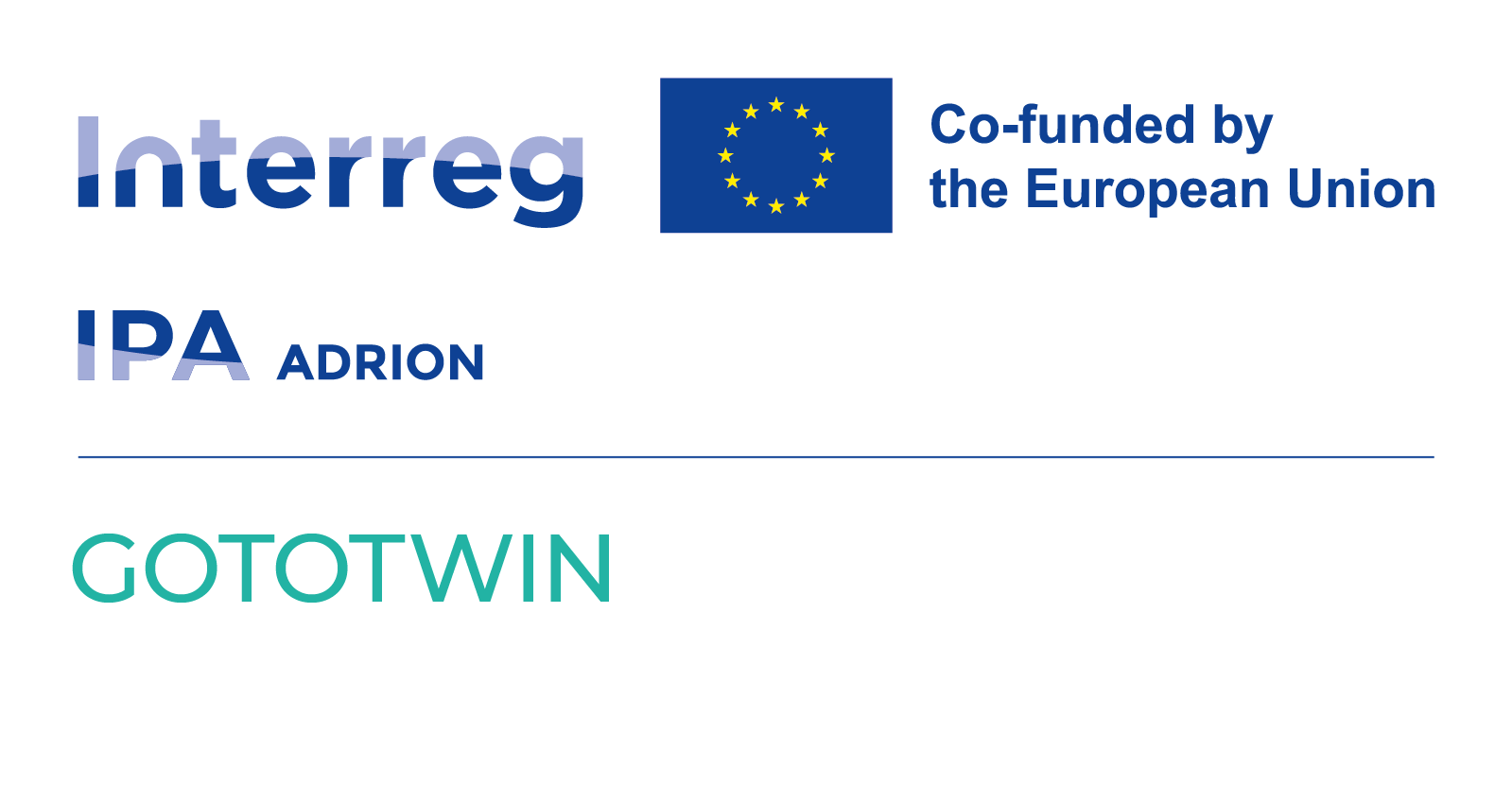 |
The GoToTwin project addresses the common challenge of accelerating the adoption and integration of renewable energy sources in the Adriatic Ionian region. The project leverages digital twin technology to tackle pressing energy and sustainability issues in the region. The overall objective of the project is to establish a robust and transnational digital twin framework tailored for renewable energy applications. This framework will enable stakeholders to effectively manage energy systems, optimise resource utilisation, and enhance overall system efficiency. By harnessing advanced technologies like artificial intelligence and data analytics, stakeholders will be empowered to make well-informed decisions and maximise renewable energy generation.
|
The Faculty of Electrical Engineering and Information Technologies (FEEIT) serves as the leading partner institution, responsible for the entire project management and implementation. FEEIT’s team is dedicated to designing and implementing an advanced Digital Twin platform tailored for renewable energy sources. This platform aims to enhance energy efficiency, optimize resource management, and foster sustainable energy solutions.
Prof. Dr. Zivko Kokolanski
|
|
Advancing Renewable Energy in the Adriatic Ionian Region through the Use of Digital Twins |
||
|
Project ID: IPA-ADRION00406 Acronym: GOTOTWIN Starting date: 1.9.2024 Duration: 36 months Web page: https://gototwin.interreg-ipa-adrion.eu/ |
||
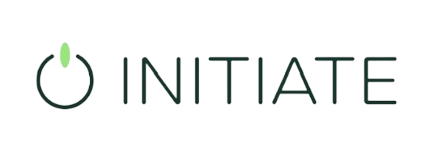 |
INITIATE is a project that aims to empower higher education institutions to develop R&I through institution transformation. INITIATE, in its widening dimension, seeks to raise excellence in science and knowledge valorisation of Europe’s universities through cooperation and knowledge circulation. The project lasts 36 months and has 13 partners from 11 countries. Through stakeholder inclusion and co-design approach, INITIATE will design an approach for institution transformation that will reflect on the current needs and resources of the institution, external elements such as policy barriers, good practices from other initiatives and identification of possible collaboration areas with other institutions including local ecosystems. Through iterative process and R&I Labs supported by online tools such as Knowledge Hub, INITIATE will generate policy recommendations for helping stimulate R&I development and scientific excellence in Widening countries, in addition to research outputs and creation of joint applications for other funding sources (e.g. Horizon Europe). The approach will be demonstrated in Croatia, Portugal and North Macedonia. This will finally result in a roadmap for long term uptake of R&I in widening countries with identified replication cases and forming of the Alliance for green energy transition that will assure the long-term sustainability of INITIATE results. |
UKIM/FEEIT is responsible for implementing one pilot project aimed at demonstrating an institutional transformation by following the INITIATE approach. The transformation should contribute to improving the scientific excellence of UKIM/FEEIT, strengthening its research capacities, enhancing its international networking and advancing its position in the innovation ecosystem.
FEEIT Project Leader: Prof. d-r Dimitar Tashkovski
|
| Supporting European R&I Through stakeholder collaboration and institutional reform (INITIATE) | ||
| Duration: 01.02.2024 – 31.07.2027
Programme: Horizon Europe HORIZON-WIDERA-2023-ACCESS-03-01: European Excellence Initiative |
||
|
|
The goal of the EvolvEV project is to raise the technical and entrepreneurial capacities of students and young engineers in the field of electric vehicles, by developing free, flexible, modular and goal-oriented courses that will direct students to the development of new business ideas. The project comes in the wake of the European Union’s commitment to the decarbonization of the transport sector, established by the adoption of the ban on the production of cars and vans that have exhaust gases after 2035. At the same time, the project aims to contribute to reducing the knowledge and skills gap between Europe and Asia, on the one hand, and between Southeast Europe and Western Europe, on the other. In addition to the e-learning platform, a contribution to raising technical and entrepreneurial capacities will also be made through workshops by international experts. The knowledge imparted through the e-learning platform and workshops will serve students as a basis for developing innovative business plans. Within the framework of the project, teams will be formed which, in consultation with an international panel of experts, will work on developing business plans. At the end of the project, national and international competitions will be organized where the teams will present their ideas to a panel of experts. Through these activities, the project addresses one main goal of combating climate change and two specific goals: stimulating innovative learning and teaching practices and supporting digital green skills in the field of higher education. | UKIM/FEEIT is responsible for developing part of the materials for the educational platform and is also responsible for coordinating the activities related to dissemination and exploitation of the project results, including organization of workshops, promotional events and developing of a sustainability strategy.
FEEIT Project Leader: Assist. Prof. d-r Vladimir Gjorgievski
|
| Supporting the evolutive expansion of technical and entrepreneurial knowledge sets for electric vehicle technologies – EvolvEV | ||
| Duration: 01.12.2023 – 30.11.2025
Programme: ERASMUS+ Programme, Key Action 2-Cooperation Partnerships |
||
 |
The goal of the project is to develop materials and tools to support the education related to renewable energies, circular economy and sustainable development for various target groups. The study materials for the classical education will be based on the common experiences and good practices of the project partners. The process will include innovative approaches in teaching, using the benefits of new technologies and following the principles of open access for all developed materials. Project partners will also work on developing teaching materials for engineers and other professionals working in the energy sector with the aim to prepare them for active participation in the energy transition. Furthermore, the project partners will develop materials for the wider community, aiming to raise the awareness of the need for the energy transition and the European Green Deal goals. The project envisages organization of trainings for various target groups. The trainings will be based on the developed education materials, but at the same time, the trainings will serve to provide feedback from the participants on the effectiveness of the trainings. The sustainability of the process is an essential requirement, so all the tools and materials shall remain available throughout and after the end of the project.
|
UKIM/FEEIT team plays a key role in this project, leading one Work Package and several project tasks and participating in almost all project Work Packages. Considering the traditional cooperation with the industry, our team is responsible for development of materials for upgrading knowledge and skills of engineers and other professionals working in industry. The team is also responsible for development of packet of learning materials for higher education as well as materials for the project trainings.
FEEIT Project Leader: Assoc. Prof. d-r Petar Krstevski |
| TRANSITion to sustainable future through training and education (TRANSIT) | ||
| Duration: 01.10.2022-30.09.2025
Programme: HORIZON-CL5-2021-D3-02-02 Sustainable, secure and competitive energy supply – Sustainability and educational aspects for renewable energy and renewable fuel technologies |
||
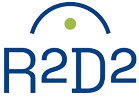 |
The aim of the project is to develop and implement tools and measures that will contribute to increased reliability, resilience and defence of Electrical Power and Energy Systems (EPES) against a growing number of natural and man-made threats. The experiences related to operation, control and maintenance of EPES indicate increased need for implementation of advanced tools and measures that would minimize potential risks, especially the ones related to transmission and distribution systems operation. The integration of dispersed generation into distribution systems imposes additional strain on operation and maintenance of these systems and increases the need to implement real-time control measures. To address these issues, R²D² develops 1) Multi-risk assessment framework for power system (C3PO), 2) Resilience suite for TSO and DSO (IRIS), 3) Prevention system for energy infrastructures security (PRECOG) and 4) Enhanced Assets Maintenance and Management (EMMA). These tools are developed and tested in cooperation between technology providers, operators of transmission and distribution systems and a regional security centre. Using this approach, the project creates tools that are applicable in all EPES parts. Furthermore, the process of tools development considers the existing regulatory frameworks, standards and business models, aiming to facilitate their wide-scale use. | The UKIM team is comprised of a number of FEEIT researchers. The team has an important role in the project, especially in setting the foundations for the research and development of the project tools and in development of relevant recommendations that will facilitate the wide – scale implementation of the project tools. These activities include identification of the challenges and limits emerging from regulatory frameworks in the power and energy sector, relevant normative documents, operational practices and technical standards.
FEEIT Project Leader: Prof. d-r Aleksandra Krkoleva Mateska |
| Reliability, Resilience and Defense technology for the grid (R2D2) | ||
| Duration: 01.10.2022-30.09.2025
Programme: HORIZON-CL5-2021-D3-02-07 Innovation Action |
||
 |
In the IDEA-East Hub project, Anhalt University of Applied Sciences, Germany, together with Universities from Kazakhstan, Uzbekistan, Ukraine, and N. Macedonia proposes a concept for an International Innovation Center for Data Science and Renewable Energy – East (IDEA-East Hub). This center would add an impetus to the internationalization of the partner universities, which can ensure the stabilization of the capacities and the international visibility of the universities through intensive digital cooperation through mutually coordinated training programs, study programs and increased exchange of students and teaching staff, in order to effectively and to effectively promote innovation in education and research activities.
Innovation competitions and forums, innovation training and accompanying continuing education measures will sustainably involve all target groups at the universities in the internationalization process and increase the university’s competitiveness. The aim is also to anchor the measures of the program in the internationalization strategy 2025-2031 of the universities and thus to transfer them sustainably into the breadth of the university. The IDEA-EAST Hub project offers the opportunity to attract future young scientists and researchers to the universities and to bind strong partners to the universities in order to increase competitiveness in international academic and research projects. The leader of the project HSA has maintained intensive contacts in the target regions since its founding and regularly conducts student and academic exchanges. This is realized, among other things, with funds from the ERASMUS+ (KA 107), Eastern Partnerships and Study Internships (both DAAD) programs, as well as from various research funds in the areas of renewable energies, data science and IIoT. The use of digital media in innovation processes and in international collaboration is already used, for example in language training using the Rosetta Stone platform. The digital collaboration platforms Zoom and Webex are used intensively for transnational seminars and conferences as well as for the organization of innovation competitions with Ukraine. The IDEA-East digital collaboration platform will take these to a new dimension and bundle them with other digital offerings for all partners. The project foresees great mobility of teaching and research staff (doctoral students) and students, educational, as well as trips for acquaintance and exchange of cultural values. Within the framework of the project, German and English language courses would be made available through the Rosetta Stone online platform, with the possibility of obtaining a corresponding language certificate (supported by Anhalt University). These courses would be available to invited researchers and students involved in the project or to the joint study programs of second cycle studies.
|
Organization and participation in conferences, workshops, joint preparations of digital platforms for collaboration, as well as preparation of digital publications and reports.
Mobility of teaching and research staff (doctoral students) and students, educational, as well as trips for familiarization and exchange of cultural values.
FEEIT Project Leader: Prof. d-r Marija Kalendar
|
| IDEA-East Hub: International Innovation Hub for Data Science and renewable Energy – East (IDEA-East Hub) | ||
| Duration: 01.01.2022 – 31.12.2025
Programme: DAAD-Deutscher Akademischer Austauschdienst, Germany, Internationalisierung der Hochschulen für angewandte wissenschaften/ Fachhochschulen (HAW/FH) HAW.International (Module A und B), Germany |
||
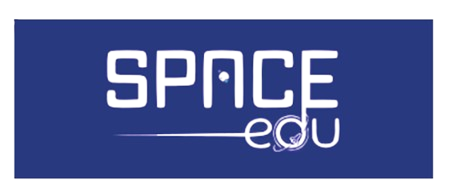 |
Space technology is any advanced technology used in space, including space vehicles, such as spacecraft, satellites, space stations and orbital launch vehicles; deep space communication; space propulsion; and a wide range of other technologies such as appropriate equipment and procedures for use in space. Although space technology has advanced rapidly in recent years, European countries still lack the human, technical and financial resources needed to carry out even the most basic space-related activities, such as meteorology, communications and natural resource management. Therefore, European higher education should develop the possibility of access to “space education” to its students. The SpaceEdu project offers an opportunity for the development of innovative, inclusive and sustainable “space education” throughout Europe. It aims to form a partnership that will encourage and support the use of space technologies as an inspiring context for teaching and learning by addressing the necessary skills in the European space sector and improving awareness for the EU space program. The project will develop and deliver teaching materials needed for space education at any level of the education system. The collaboration of four European partners working in different fields will bridge the gap between the different disciplines of space science. Professors and senior researchers will apply their teaching and research experiences and practices to reshape space education in Europe. One of the main results of SpaceEdu is to incorporate innovative educational methods and materials based on EdTech for space studies. Annual conferences in the field of space science and technology will be organized in order to promote and adapt space studies at all levels of national education systems. |
The UKIM/FEIT team primarily focuses on introducing satellite and deep space communications into the space education platform. It will identify potential topics in the field of satellite and deep space communications and develop appropriate courses to reshape space science and technology education in the educational space of UKIM and other partner institutions/universities. The UKIM/FEIT student community will be involved in space science and space technology courses by participating in the Summer School “Space and Technology 4All”.
FEEIT Project Leader: Prof. d-r Zoran Hadzi – Velkov |
| Reshaping the future of space education via multidisciplinary, inclusive, and sustainable learning and teaching activities (SpaceEdu) | ||
| Duration: 28.02.2022-27.02.2025
Programme: Erasmus+ |
||
|
|
Stimulating market acceptance and action towards increasing demand for energy skills in construction through an innovative 3B approach (activities to increase Visibility, Validation and Value of skills). North Macedonia has harmonized its energy efficiency policy with European legislation and has established national energy saving targets by 2030. In the construction sector, preparatory activities have been undertaken within the first and second project cycles: BuildUpSkills I, where the current situation and needs for qualified construction workers were defined, and the priority measures that need to be implemented identified; while in Build Up Skills BEET, new qualifications related to EE and the application of RES in buildings were introduced. The following TRAINEE project, in addition to construction workers, also included construction professionals with a higher level of qualifications. The SEEtheSkills project is a continuation of the previous projects of the initiative. The main goal of the project is to act towards stimulating the demand for energy skills in the construction sector through an innovative 3V approach. Using previously developed and new or upgraded energy skills, the project aims to increase their visibility and availability in the market, as well as to enable their mutual recognition in partner countries and beyond. The 3V approach includes the visibility of skills through the formation of an integrated database of energy skills; validation of energy skills making them comparable in the project area for knowledge and skills management and through transfer and replication of training schemes between project partners; and increasing the value of skills by expressing the benefits of using energy skills to achieve building sustainability. Specific project objectives are: 1) Increasing the visibility of skills through the establishment of a register of energy skills that will contain data from various sources; 2) Validation of the relevance of skills through linking and ranking of skills and their connection with national and European qualification standards, in order to enable mutual recognition; 3) Expressing the value of energy skills to certified professionals and companies.
|
The Faculty of Electrical Engineering and Information Technologies is part of an international consortium with 10 partners, which has an active role in all phases of the project:
– the preparation and application phase, – transfer of the methodology for recognition of previous learning, – definition of procedure and criteria for mutual recognition, comparison and ranking of energy efficiency skills, based on defined qualification standards, – putting into use an electronic tool for recognition of previous learning, – formation of a concept for valuing sustainable energy skills through individual digital badges.
FEEIT Project Leader: Prof. d-r Hristina Spasevska
|
| Sustainable EnErgy Skills in construction: Visible, Validated, Valuable (SEEtheSkills) | ||
| Duration: 01.06.2021-31.05.2024
Programme: Horizon 2020. Secure, clean and efficient energy LC-SC3-B4E-2-2020 |
||
|
Duration: 21.10.2021 -20.10.2024 Programme: NATO SPS |
Advanced UAV Based GPR Imaging Techniques for Explosive Detection
|
Prof. d-r Venceslav Kafedziski |
